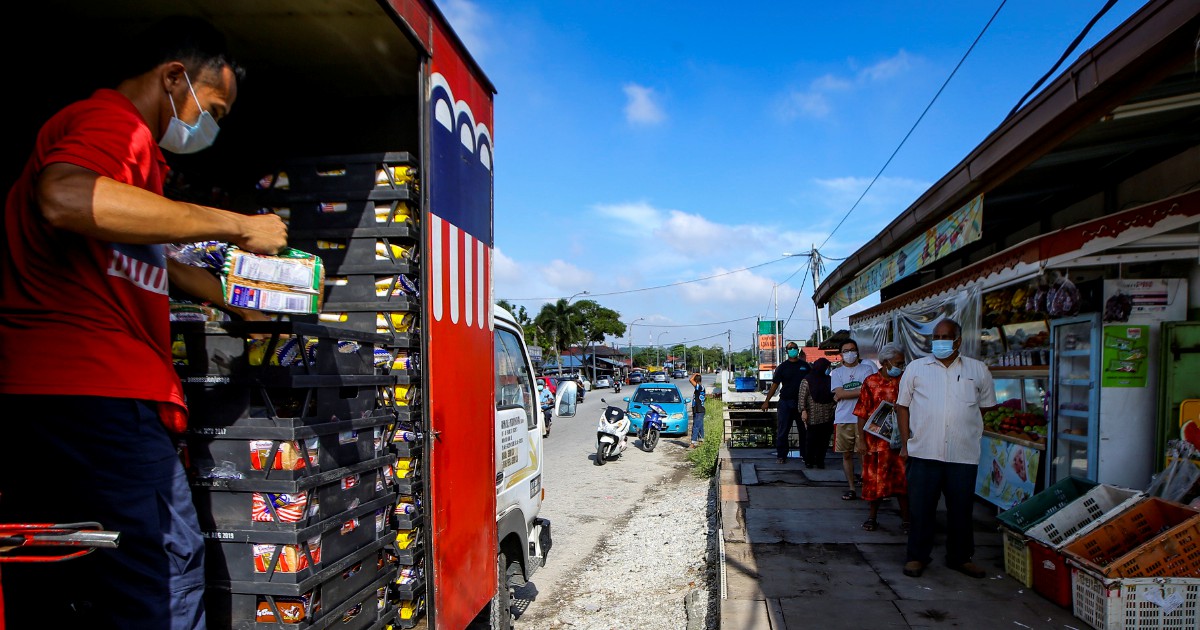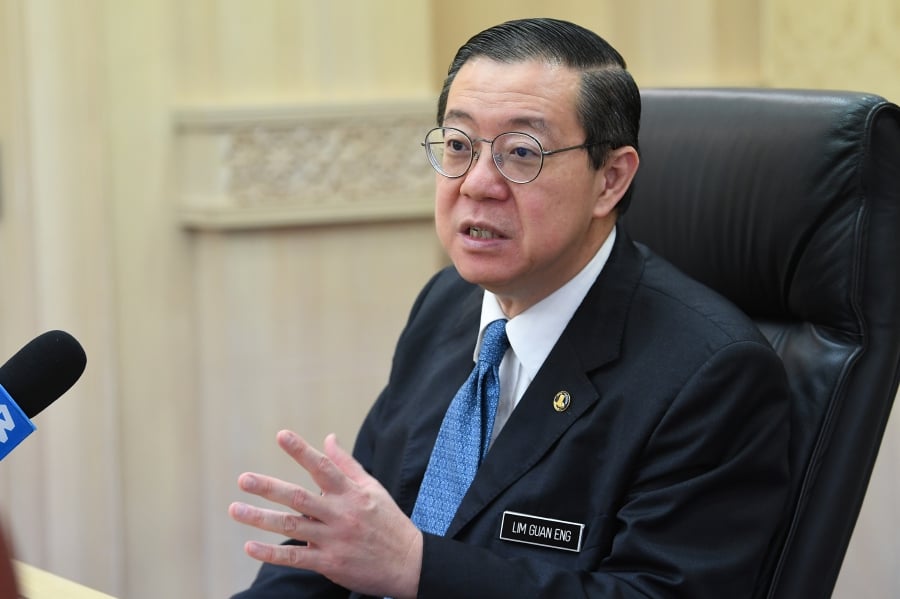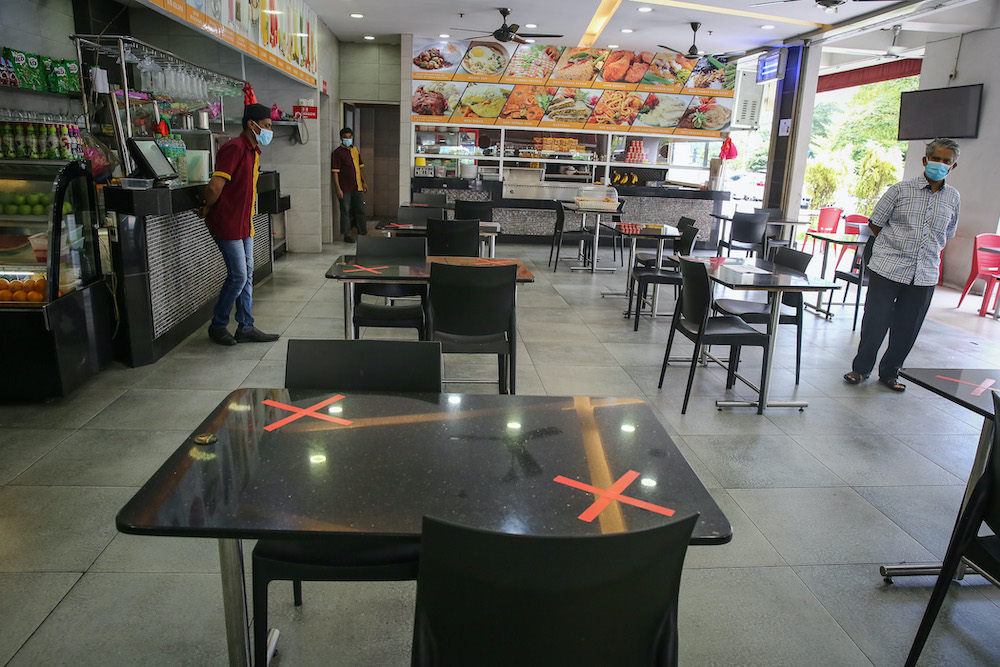Poor communication, inconsistent application, and haphazard rollout confuses and frustrates business owners and consumers alike.
It’s accurate to say that Malaysians have been fairly tolerant of the year-plus parade of lockdowns, abridged MCOs, interstate travel bans, and assorted SOPs during the pandemic.
This time, however, seems to be different.
As MCO 3.0 came into force – first for most of Selangor, then, after a confused rollout, for Kuala Lumpur the next day, along with certain areas in Johor and Terengganu – business owners, commerce associations, and everyday consumers alike shared their frustrations in interviews with traditional media and en masse on social media.
Once again, the movement control order imposes a blanket ban on dine-in business at restaurants, a move that has been criticised by many. Dozens of restaurateurs and chefs have signed a petition urging the government to rescind the ban. “Restaurants have continually obeyed all the rules and imposed strict SOPs to keep the public safe,” one chef owner wrote. “Yet we are always the first to be punished with these bans.”

Another restaurateur, asking that we not publish her name, told us in an interview, “We ordered a lot of expensive produce and ingredients from overseas for the upcoming Mother’s Day and Hari Raya holidays. Then we were suddenly told we could not offer dine-in meals. How are we supposed to manage? People aren’t going to spend the same kind of money for a takeaway meal that they would in bringing their family to eat in our restaurant. We’ll not only suffer much lower sales, but will incur extra cost from food wastage now, too.”
Another owner of a restaurant in Damansara Heights shared a similar lament: “We have gone to great lengths to remove tables and reduce capacity to ensure social distancing. We always do temperature checks and require everyone to scan the MySejahtera QR code. We even have a staff member personally provide hand sanitizer to every single customer who comes in. And now we have to essentially close down? How is this possibly fair? Restaurants have not been identified as the source of outbreaks or big clusters, as far as I know. But we always are the ones made to suffer… and yet, the big festive bazaars are still being allowed! Salons can stay open. Many other business can operate as usual. But not us. It’s just not right.”
The Ramadan bazaars have been a particular source of contention. They have been allowed in some areas, prohibited in others, and told they could operate another few days in yet others, with closure mandated in MCO areas from May 10. Netizens have taken to social media to express their ire, particularly since some bazaars have been forced to close for complete failure to follow SOPs, and clusters have been identified as having originated at bazaars.

“The issue of Ramadan bazaars was a mistake right from the start. I wonder how the powers-that-be can scurry like rats every time Covid-19 cases increase,” a user called Bruclax wrote on Malaysiakini. “We have been in this mess since March last year and it is clear that both the public and government have learnt nothing. Those in charge of fighting this pandemic are really shooting in all directions, hoping for a hit.”
Another user called Wakandan echoed the sentiment, saying that there should have been a more proactive approach to the bazaars: “We have been opening Ramadan bazaars for a few weeks already. God knows the size of infection as a result. What’s so difficult about seeing the danger of the pandemic that lies in crowded places? Is not SOP about maintaining social distance and that crowded places are at risk?”
User Miloroti agreed, writing of the decision to finally shut down some of the bazaars: “Too little, too late. This is a case of closing the barn door after the horses have bolted. Oh well, what is an extra couple of days for the virus to continue spreading and infecting?”
A POINTLESS MCO?
Still others have maintained that a movement control order that doesn’t control any movement is useless, and just increases the public’s misery without actually accomplishing anything in return.
Writes user Concerned PA: “A movement control order only works if the movement of people is curtailed. It is absurd to impose an MCO and allow economic activity involving 80 percent of the population. These short stints of MCO without strict rules will not do anyone any good.”
Another user called IndigoMarlin2492 agreed, adding, “Half-baked policies for the masses, such as the two-day school closure if there is a Covid-19 case detected among students and teachers of the school, will only further spread the virus as symptoms normally only start showing in three to five days.”
Malaysian International Chamber of Commerce and Industry (MICCI) executive director Shaun Cheah was critical, as well, saying business would be significantly disrupted. “It’s totally ridiculous. Economic activities are allowed, but no interstate or inter-district travel is allowed. How do workers go to work if they have to cross states?” [Editor’s note: The government clarified on May 9 that police permission is not required for this, only a MITI letter and/or employment pass is needed.]

Meanwhile, former deputy international trade and industry minister Ong Kian Ming has also pilloried the latest move, noting the initial lack of information and the subsequent confusion it caused.
Center for Market Education CEO Carmelo Ferlito questioned the government’s political will to end the pandemic, saying Malaysia had not made any progress in defeating the virus in the past 15 months. He said that “absurd and useless” lockdowns were pushing many into poverty, and noted that the government’s communication strategy has been consistently poor.
“The lack of proper communication has been [the one] constant during the management of the pandemic,” he said. “After one year of hiccup measures like this one, without a proper strategy, businessmen may be tempted to just close down rather than make the effort to survive.”
SOPs BECOME A MOVING TARGET
The SOPs for this round of the MCO seem to be changing on a daily basis. Sports and exercising outdoors were initially prohibited, then this was revised following a public backlash, with these activities now allowed, as long as the sports are non-contact. A day later, it was announced that golfing would be allowed in Selangor. Presumably this will be in the case in KL, too, but it’s not entirely clear.
You can apparently go to your neighbourhood shopping centre (if it’s open), as long as you don’t dine in at any restaurants, so that doesn’t make a great deal of sense. In fact, it doesn’t seem much movement is really being curtailed at all, as long as you stay in your district. Of course, few people know where the specific boundaries for each district are, and during MCO 2.0, it was decided that KL and Selangor would be treated as one district. That may or may not be the case this time – netizens have called for more clarity on this point. As for Selangor, the activities which have been announced as being specifically prohibited in MCO areas include:
- Spas and reflexology centres
- Clubs and pubs
- Theme parks and indoor playgrounds
- Karaoke
- Swimming pools
- Gyms
- Cinemas
- Contact sports and tournaments involving audiences/spectators
- Group sports and events such as fun runs and marathons
- Social activities involving big groups including weddings, receptions, gatherings, retreats, birthday celebrations, kenduri, and more.
- Business events involving big groups such as seminars, conferences, talks, exhibitions, and more.
Additionally, all interstate and inter-district travel is banned nationwide (except for those with police permission) from May 10 to June 6.

One thing is clear: MCO 2.0 was completely ineffective in achieving its goal of reducing the spread of the virus and bringing down the number of infections. MCO 3.0 looks set to be a similar disaster, simply because of the fact it’s not meaningfully controlling anyone’s movements. It’s simply crushing the already-hurting F&B, tourism, and retail sectors, but as far as mitigating the spread of Covid-19, many seem to feel that these half-hearted MCOs are a poor approach.
OTHER STATES NOW IMPACTED, TOO… SORT OF
Announced late on May 8, MCO 3.0 will be enforced in Penang starting from May 10. However, only three districts and three zones will be under MCO in Penang. (Butterworth and George Town are among the impacted areas.)
The specific districts are Timur Laut, Seberang Perai Tengah, and Seberang Perai Selatan. The three zones are Mukim 12, Bandar Butterworth, and Mukim 14. The MCO will be in effect from May 10 to May 23.
Additionally, specific areas in Pahang and Perak will be under MCO for the same period. It’s getting harder and harder to keep up with MCO-affected areas and the changing SOPs, but here’s what we know:
In Perak, the government has announced that the Hulu Kinta area – which includes Ipoh, Lahat, Chemor. and Tanjung Rambutan – will be included in the MCO list.
The government also announced enhanced MCOs at Genting View Resort in Genting Highlands and at Kampung Meripoh, Kota Bahagia, and Muadzam Shah in Rompin, Pahang.
Clear on all that? Well you’ve also now got HIDE to deal with, which is causing a great deal of controversy already.
NEW HIDE SYSTEM DRAWS FIERCE CRITICISM
The latest measure being rolled out is the government’s ‘Hotspot Identification by Dynamic Engagement’ (HIDE) system, which purports to list highly specific areas which have been identified as high-risk, in theory allowing consumers to make informed decisions about where to go. Authorities also mandated an immediate three-day closure for certain premises identified by the system. The announcement on Saturday, May 8 by Senior Minister (Security) Datuk Seri Ismail Sabri Yaakob caught many by surprise.
There was plenty of confusion late on Saturday when the directives issued by the National Security Council (NSC) kept changing following the official announcement, with minister Khairy Jamaluddin saying one thing, only to be contradicted by the NSC just hours later. Retailers were not amused.
“In the morning, we were telling our retailers, ‘All OK, no need to close’. Then at 8pm, we told them they need to close immediately. At 11.30pm, we told them they will close from May 10. Then at midnight, we had to ask them to revert back to the original plan of closing immediately. Who wouldn’t get angry at all these sudden changes?” a source who works in the mall industry told The Straits Times in an interview.
A slew of prominent malls were indeed quickly shut down following the NSC directive, including Suria KLCC, 1Utama, Pavilion KL, Fahrenheit88, Subang Parade, The Mines, Tropicana Gardens, Mid Valley Megamall, IOI City Mall, Sungei Wang, NU Sentral, Sunway Velocity, Sunway Pyramid, KL East Mall, Publika, The Starling, Paradigm Mall PJ, Plaza Low Yat, Melawati Mall, Central I-City, SOGO Malaysia, Selayang Mall, Brem Mall, Setapak Central, Plaza Shah Alam, MyTown KL, Bangsar Shopping Centre, and 1 Mont Kiara.

Many merchants and business owners operating in the affected malls were clearly upset by this suddent directive, any some expressed concern about consumer bias remaining long after any threat had passed if their malls were listed in the HIDE system and ordered to close. A number of retailers slammed the hastily announced order, saying it would cause “irreversible damage” to businesses and create unnecessary “panic and fear.”
Shortly after the HIDE list was announced, forcing many closures, mall operators and various retailers said the list itself was inaccurate. On Saturday, May 8, they urged the Ministry of Science, Technology, and Innovation (MOSTI) to immediately suspend announcements of information derived from the HIDE system on claims that the Covid-19 hotspot listing data is inaccurate.
“Merely listing premises in isolation of supporting information is baseless and is not useful in curbing the spread of the disease,” the statement said. “There must be weightage in the listing based on population, density, ratio of infections as a percentage of the total visitations, etc.”
UNEXPLAINED DOUBLE STANDARDS
The statement went on to claim that the HIDE assessment is grossly unfair to shopping malls and retailers which have invested so much on safety and control and adhered to SOPs as determined by the authorities.
An analysis by former journalist Yow Hong Chieh, posted on social media and picked up by news outlet Free Malaysia Today, would appear to confirm this. Referencing published figures, Yow said that only 4.8% of cases from clusters between February 22 and April 2 involved shopping areas.
By contrast, factories made up a stunning 48.1% of cases in that same period, followed by communities (12.6%), construction sites (11.6%), detention centres (5.6%), and educational institutions (5.5%).
So why target shopping malls?
“According to the HIDE FAQ, 90% of cases come from 0.2% of premises registered on MySejahtera, so either factories, construction sites, detention centers and the rest are not using MySejahtera or HIDE is targeting the wrong premises,” Yow wrote. “Of course, it’s difficult to know how HIDE, which was developed by the health ministry and Bank Negara Malaysia, arrived at this list.”
He continued, “Aside from vague mentions about variables (like crowd density, space constraints, etc.) and backwards contact tracing, we don’t know how it works.”
Democratic Action Party MP Kelvin Yii piled on, as well, saying in a statement on May 9: “Such last-minute announcements are not only a huge inconvenience to the public, but what is more important is that without proper explanation of the science and data behind such a decision, it is oppressive and irresponsible towards business owners affected, especially when they are already struggling to stay afloat.
“To make things worse, the conflicting announcements by different ministers on the same issue on the same day itself speaks volumes of how the government has probably lost control or has no clue how to deal with this pandemic,” he added, questioning why only shopping malls were ordered to be closed while factories and other workplaces – which have been the source of a high number of Covid clusters and have accounted for nearly half of all cases – were allowed to remain open.
.jpg)
Along with shopping malls, the initial HIDE list also included busy transport terminals, convenience stores, markets, and Ramadan bazaars among the 152 premises enumerated. Not all were required to close, however, a fact not lost on DAP Secretary General Lim Guan Eng, who railed against the double standard and minced no words in his blistering assessment of current leadership.
“Muhyiddin Yassin is the worst Malaysian prime minister in history by ordering all locations listed under HIDE to close immediately for three days,” Lim said. “There is no reason why shops with no Covid-19 cases must close, just because a nearby shop has Covid-19 cases.”

The former finance minister said the government was being irresponsible in issuing this eleventh-hour directive, while not giving any consideration to the heavy financial losses that would be shouldered by businesses, especially SMEs operating in these malls.
“Perikatan Nasional continues to be in denial that its incompetence has made Malaysia the worst country in Asia-Pacific in per capita Covid-19 daily cases,” he said, noting that states which had previously been green zones, such as Sarawak, Kelantan, and Penang, were all now notable hotspots for infections.
"ExpatGo welcomes and encourages comments, input, and divergent opinions. However, we kindly request that you use suitable language in your comments, and refrain from any sort of personal attack, hate speech, or disparaging rhetoric. Comments not in line with this are subject to removal from the site. "





















